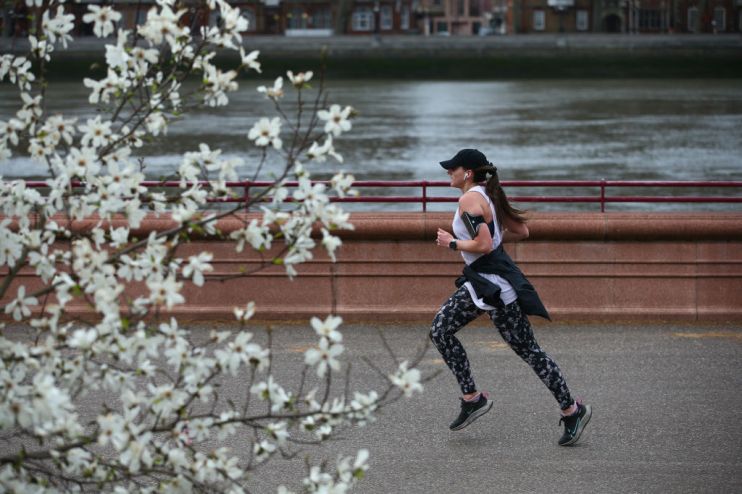Why boosting physical activity is key to speeding up London’s pandemic recovery, by Prof Kevin Fenton of Public Health England

In this guest column, Professor Kevin Fenton, London regional director at Public Health England, calls on businesses to prioritise employee health ahead of London Sport’s Active London conference this week.
As we emerge from Covid-19 and set out to repair its impact globally, the success of London’s post-pandemic recovery will ultimately depend on the physical and mental health of our population.
With more Londoners mixing where and when they want to work, protecting their wellbeing will be paramount to our collective prosperity. One of the major areas of concern, however, is the issue of inequality across our city’s boroughs, including the impact Covid-19 has had on key workers and particularly in ethnic minority communities, who are disproportionately represented on the frontline.
As a result, inequalities around the health of Londoners have defined every aspect of our journey throughout the pandemic. We’ve known about those inequalities right from the beginning and, as those inequalities have been exacerbated by Covid, it is in those communities worse off where we are seeing less trust in the vaccine rollout.
This is a serious concern. As we aim to bridge London’s apparent socio-economic divide, one of the best ways to nurture equality is to promote healthier living wholesale and it is an approach we must also adopt when promoting and communicating the importance of physical activity and local sport throughout the city.
There has always been a generational and gender challenge to promoting physical activity, with people becoming less active as they get older and women being less active than men overall.
To combat this, community groups and employers can help to encourage people to adopt physical activity. For example, we have been working with insurance companies to introduce incentives into their plans and to offer customers lower premium rates if they promote physical activity within their communities.
By looking at these types of creative partnerships, we can help incentivise positive behaviours among people who may not see active living as an accessible or affordable solution. This is a subject we talk about often at Public Health England: how to get more people on the move in our city’s green and blue spaces, and how we can then apply that passion at scale.
Thriving ecosystem between health and wealth
One of the questions now is how we look to diversify the key messengers on the importance of physical activity as we emerge from the pandemic – not only from the voices of sportspeople, but people within London’s boroughs; to give them a voice on what they need to build resilience in their community and for sport and physical activity to play a more important role in people’s lives.
This is something I will be addressing personally at Active London 2021 this week (21-22 September), hosted by London Sport. I hope to engage with people working in the capital’s sports and physical activity sectors on how we can best promote healthier lifestyles among the city’s population and incentivise our businesses to do the same in a post-Covid era.
Needless to say, London is a fantastic city and being the capital’s public health director is a true privilege. What’s more, it is clear from the data that “health equals wealth” and specifically that wherever you have a healthier population there is greater opportunity for economic productivity moving forward.
There is a thriving ecosystem between health and wealth and we shouldn’t have to choose between the two. As we look to the future of work and the economy, it is essential that diversity, inclusion, and equity be a part of our efforts to build a better and fairer society, and that means ensuring that everyone puts their health high up on the agenda.
Register now for tickets to the free-to-attend Active London conference, which takes place on 21-22 September. Visit www.activelondon2021.splashthat.com